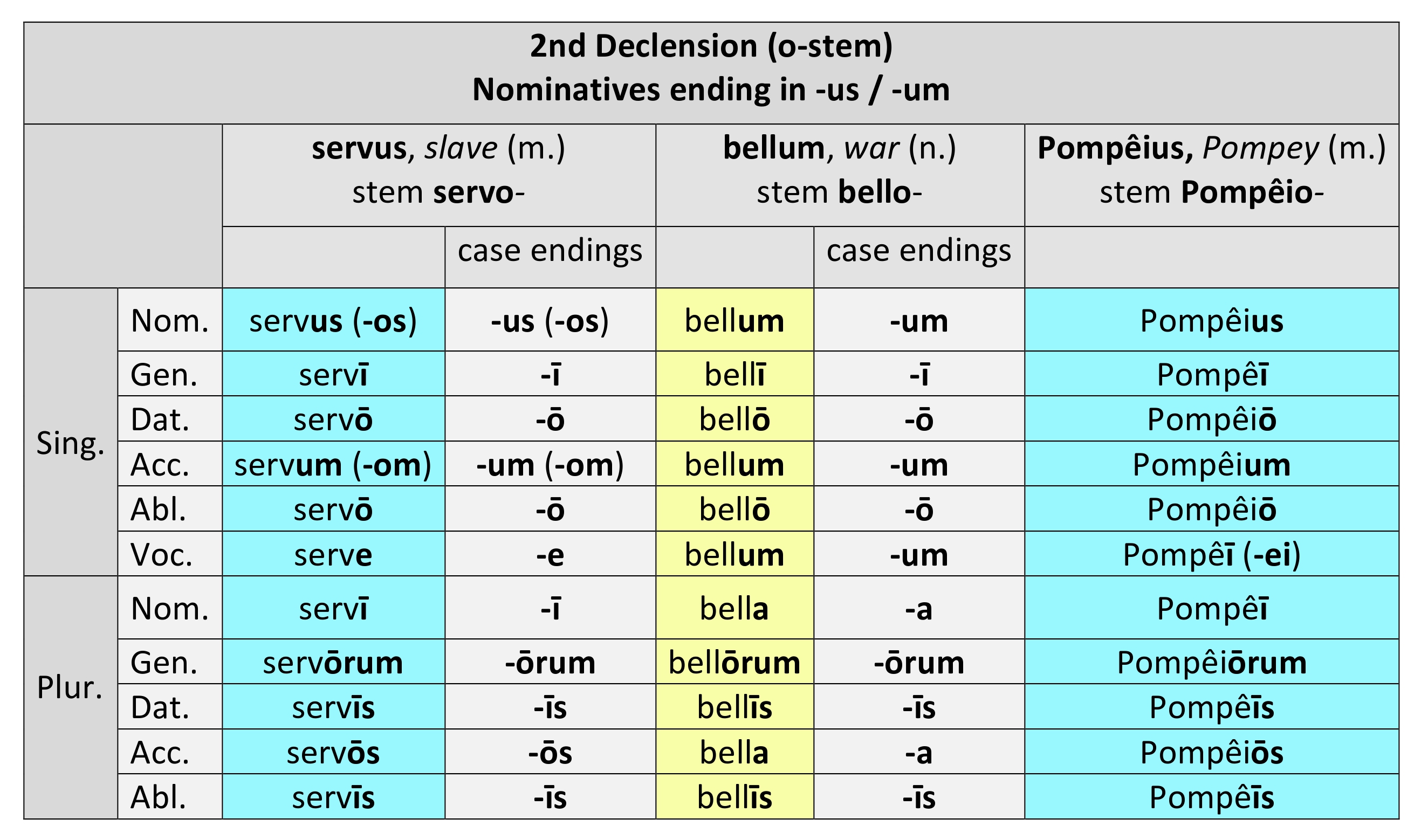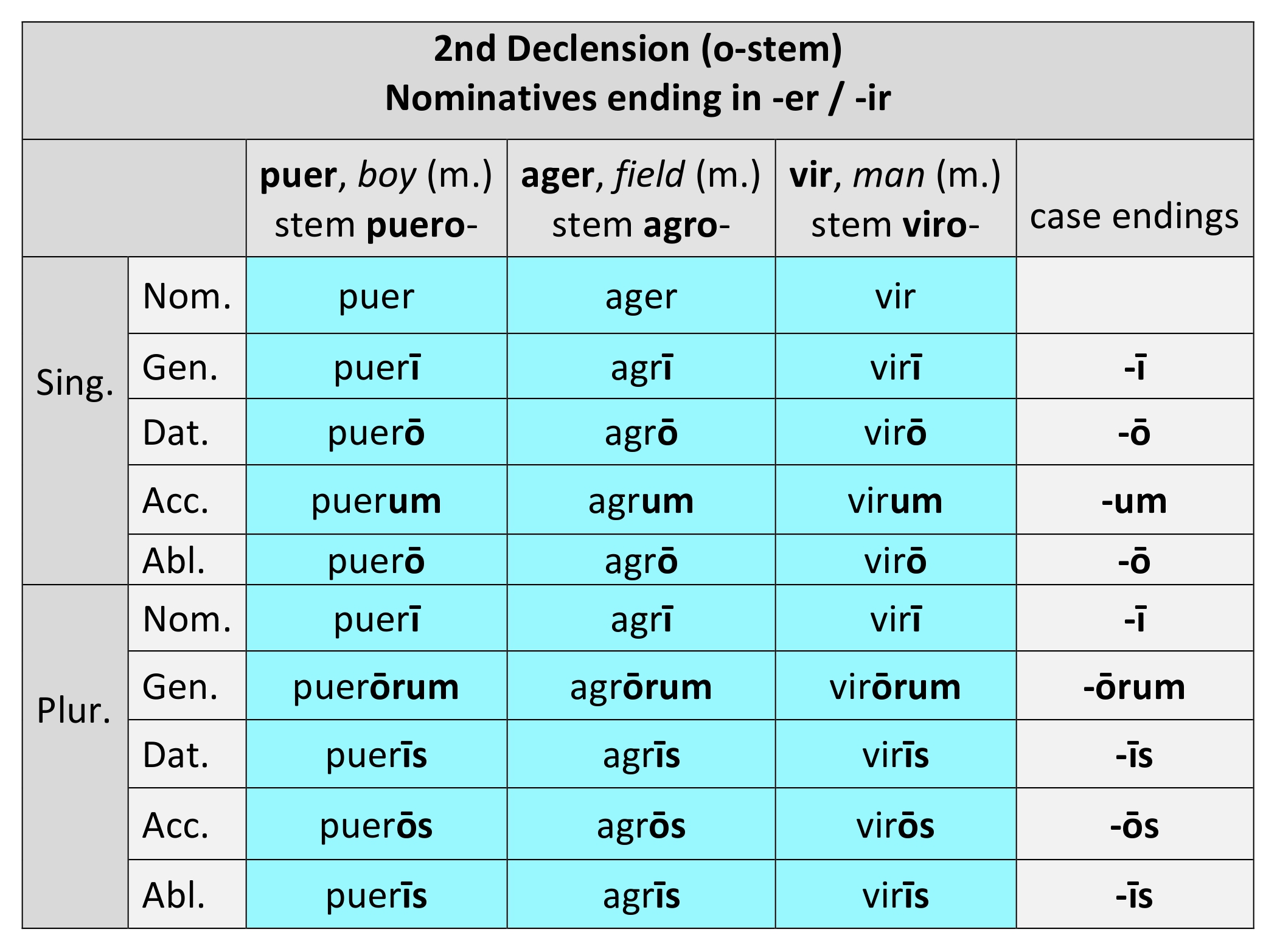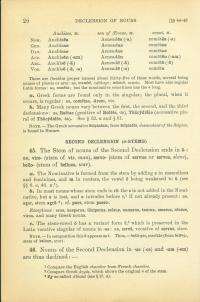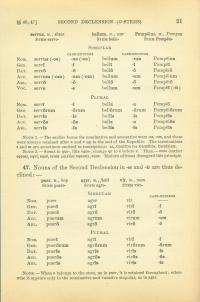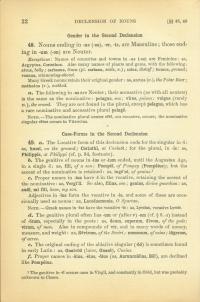45. The Stem of nouns of the 2nd Declension ends in -ŏ.
viro- (stem vir man)
servo- (stem servus or servos slave)
bello- (stem bellum war)
a. The nominative is formed from the stem by adding s in masculines and feminines, and m in neuters, the vowel ŏ being weakened to ŭ (see § 6.a and § 46. Note 1).
b. In most nouns whose stem ends in strong -rŏ- the s is not added in the Nominative, but o is lost, and e is added before r,1 if not already present.
ager, stem agrŏ-2
cf. puer, stem puero-
Exceptions: erus, hesperus, iūniperus, mōrus, numerus, taurus, umerus, uterus, vīrus, and many Greek nouns.
c. The stem vowel -ŏ has a variant form -ĕ,3 which is preserved in the Latin vocative singular of nouns in -us.
servĕ, vocative of servus slave
Note— In composition this -ĕ appears as -ĭ. Thus:
belli-ger warlike (from bello/e-, stem bellum war).
46. Nouns of the 2nd declension in -us (-os) and -um (-om) are thus declined.
Note 1— The earlier forms for nominative and accusative were -os, -om, and these were always retained after u- and v- up to the end of the Republic. The terminations -s and -m are sometimes omitted in inscriptions.
Cornēlio for Cornēlios, Cornēliom
Note 2— Stems in quo-, like equo-, change qu to c before u. Thus, ecus (earlier equos), equī, equō, ecum (earlier equom), eque. Modern editions disregard this principle.
47. Nouns of the 2nd declension in -er and -ir are thus declined.
Note— When e belongs to the stem, as in puer, it is retained throughout; otherwise it appears only in the nominative and vocative singular, as in ager.
48. Nouns ending in -us (-os), -er, -ir, are masculine; those ending in -um (-on) are neuter.
Exceptions: Names of countries and towns in -us (-os) are feminine.
Aegyptus, Corinthus
Also, many names of plants and gems, as well as:
alvus belly
carbasus linen [plural carbasa (n.) sails]
colus distaff
humus ground
vannus winnowing-shovel.
Many Greek nouns retain their original gender.
arctus (f.) the Polar Bear
methodus (f.) method
a. The following in -us are neuter; their Accusative (as with all neuters) is the same as the Nominative.
pelagus sea
vīrus poison
vulgus (rarely m.) the crowd
They are not found in the plural, except pelagus, which has a rare Nominative and Accusative plural pelagē.
Note— The nominative plural neuter cētē, sea monsters, occurs; the nominative singular cētus occurs in Vitruvius.

